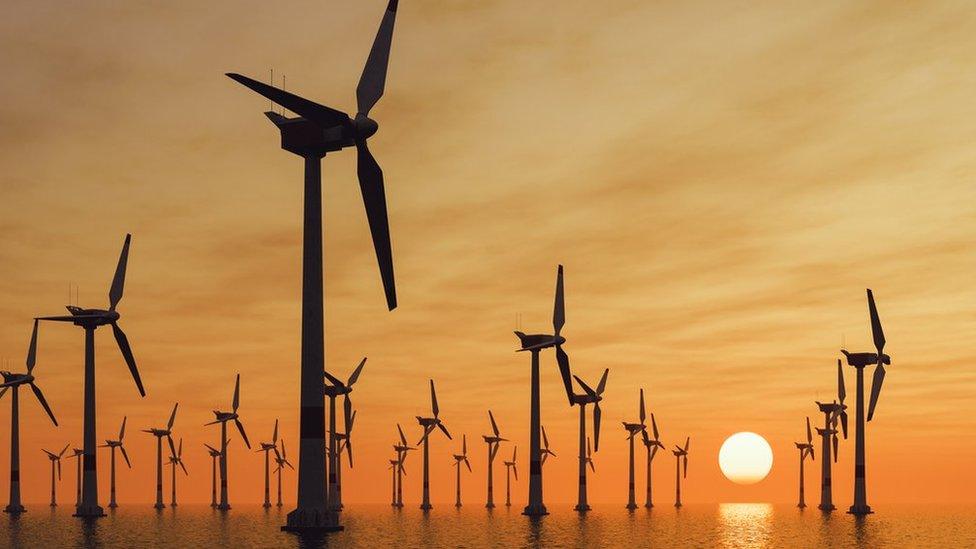Notpla: UK plastic-alternative developer among £1m Earthshot Prize winners
- Published
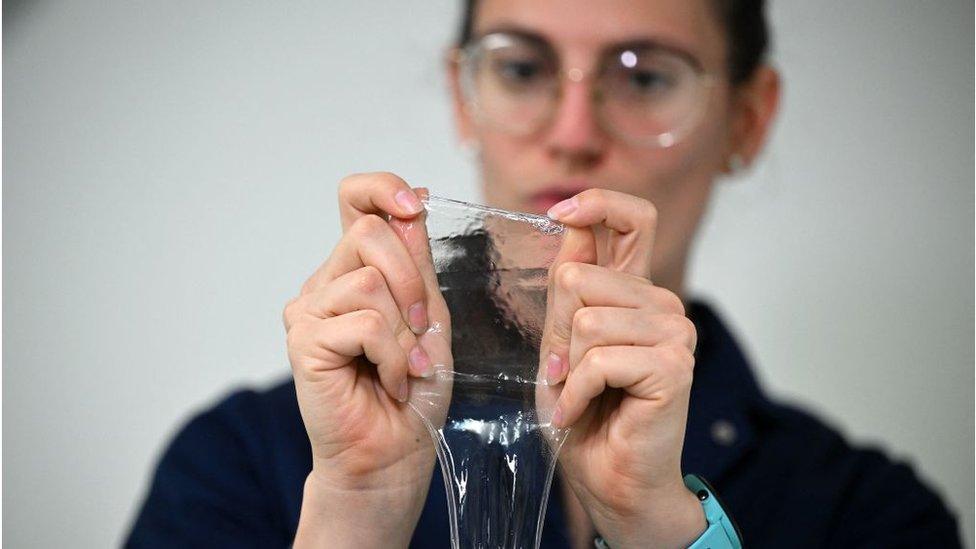
A Notpla biodegradable membrane is made from seaweed
A UK firm that makes packaging from seaweed has been named as one of the £1m winners of Prince William's Earthshot climate prize.
The alternative to plastic was developed by London startup Notpla.
The firm was founded by Rodrigo Garcia Gonzalez and Pierre Paslier while they were students at Imperial College London and the Royal College of Art.
The Earthshot Prize gives grants to firms that innovative ideas for the environment that can be scaled-up.
Manufacturing plastic adds to greenhouse gases, and plastic pollution can harm animals and the environment.
Hackney-based Notpla first developed an edible "bubble" called an "Ooho" that could hold water, and then a plastic alternative called "Notpla" made from seaweed.
Its products include a coating for takeaway boxes, film, paper made from seaweed pulp, and a rigid plastic alternative, also made from seaweed.
This year the firm has made more than a million takeaway food boxes for takeaway delivery platform JustEat.
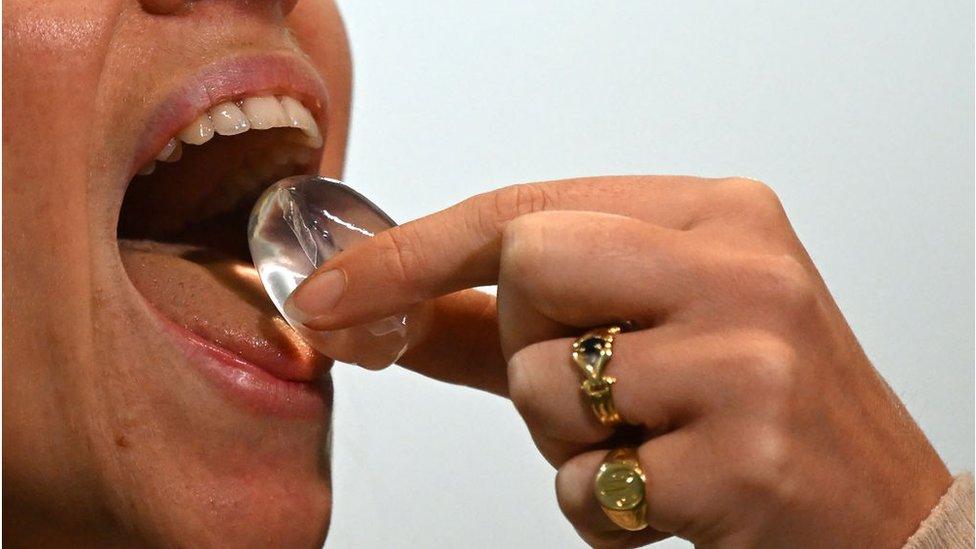
The firm first developed an edible "bubble" called an "Ooho"
Notpla was one of five companies to be announced as winners at the Earthshot Prize award ceremony in Boston.
The Prince of Wales said the Earthshot winners "prove we can overcome our planet's greatest challenges".
"Alongside tonight's winners and finalists, and those to be discovered over the years to come, it's my hope the Earthshot legacy will continue to grow, helping our communities and our planet to thrive."
Notpla co-founder Mr Paslier said: "When Rodrigo and I started Notpla eight years ago in our student kitchen, we would have never imagined we would be here today.
"No-one wants to live in a world full of plastic waste but it's not too late to act. There's never been a greater time to use natural solutions to solve the plastic challenge."
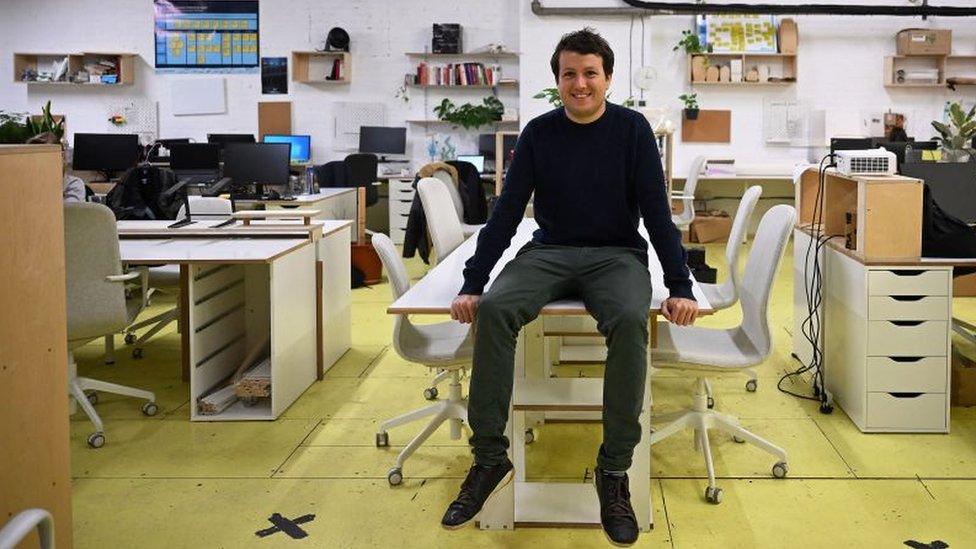
Notpla co-founder Pierre Paslier says no-one wants to live in a world full of plastic waste
Plastic pollution is having a global impact, with plastics found from the polar sea-ice to the deepest part of the ocean.
Plastic can damage habitats and be fatal for marine species such as whales.
It can break into small pieces called microplastics and work its way up the food chain.
Earlier this month researchers in Wales found seabirds had been eating plastic and glitter after mistaking them for fish.
Chicks were being fed plastic by adult birds, which could have come from fishing equipment, or from prey.
Recently researchers found thousands of pieces of plastic debris washed up on a remote British island in the South Atlantic.
Litter found on the south-western coast of Ascension Island was traced back to countries including China, Japan and South Africa.
Related topics
- Published3 December 2022
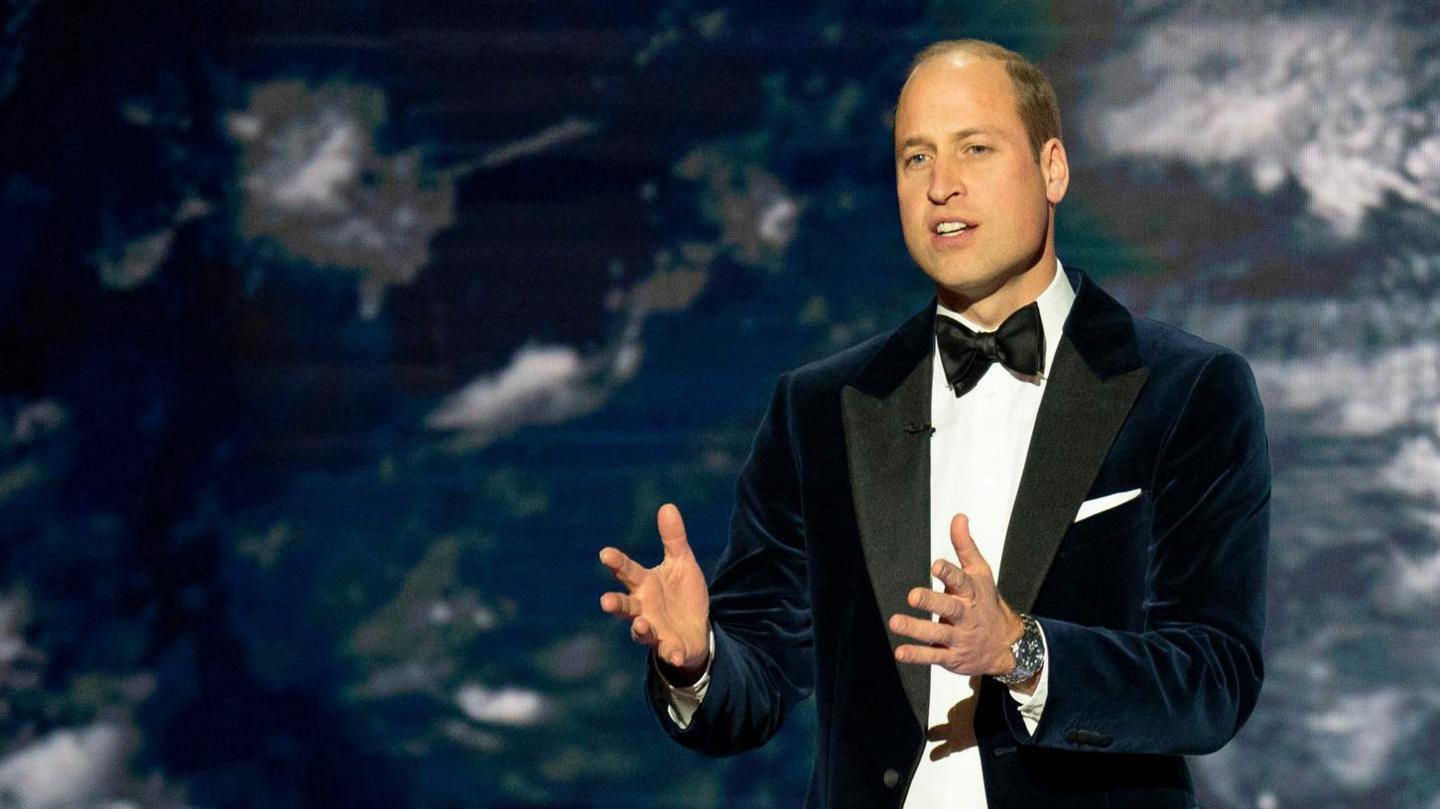
- Published4 November 2022
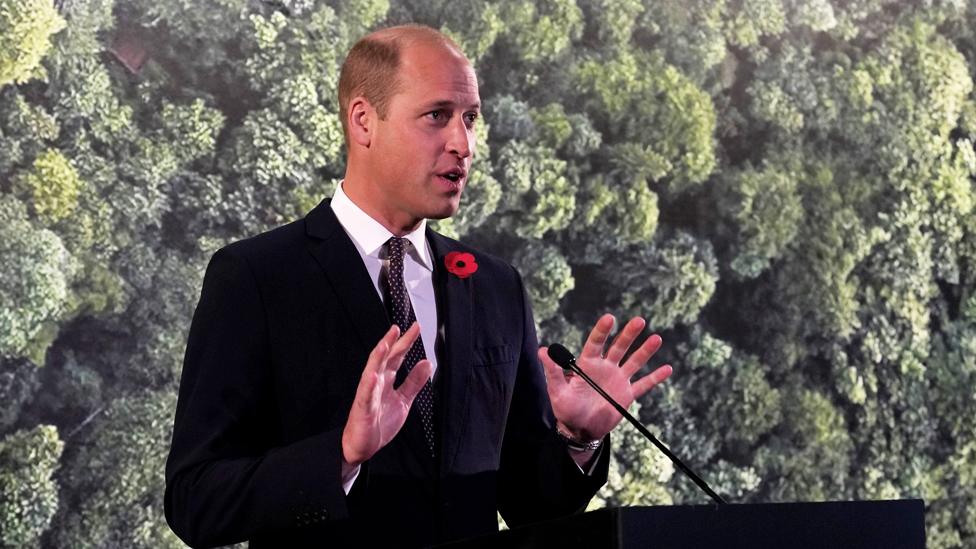
- Published16 November 2022
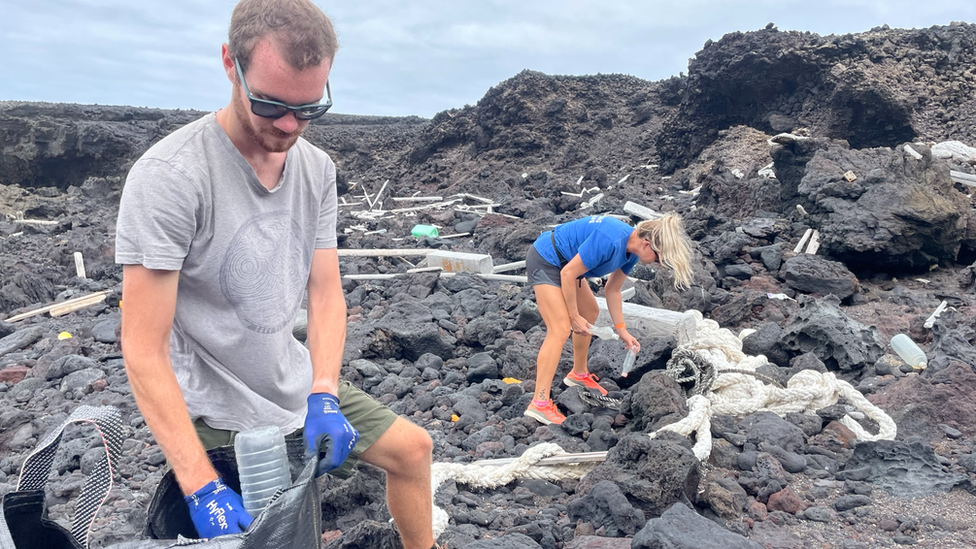
- Published3 May 2024
